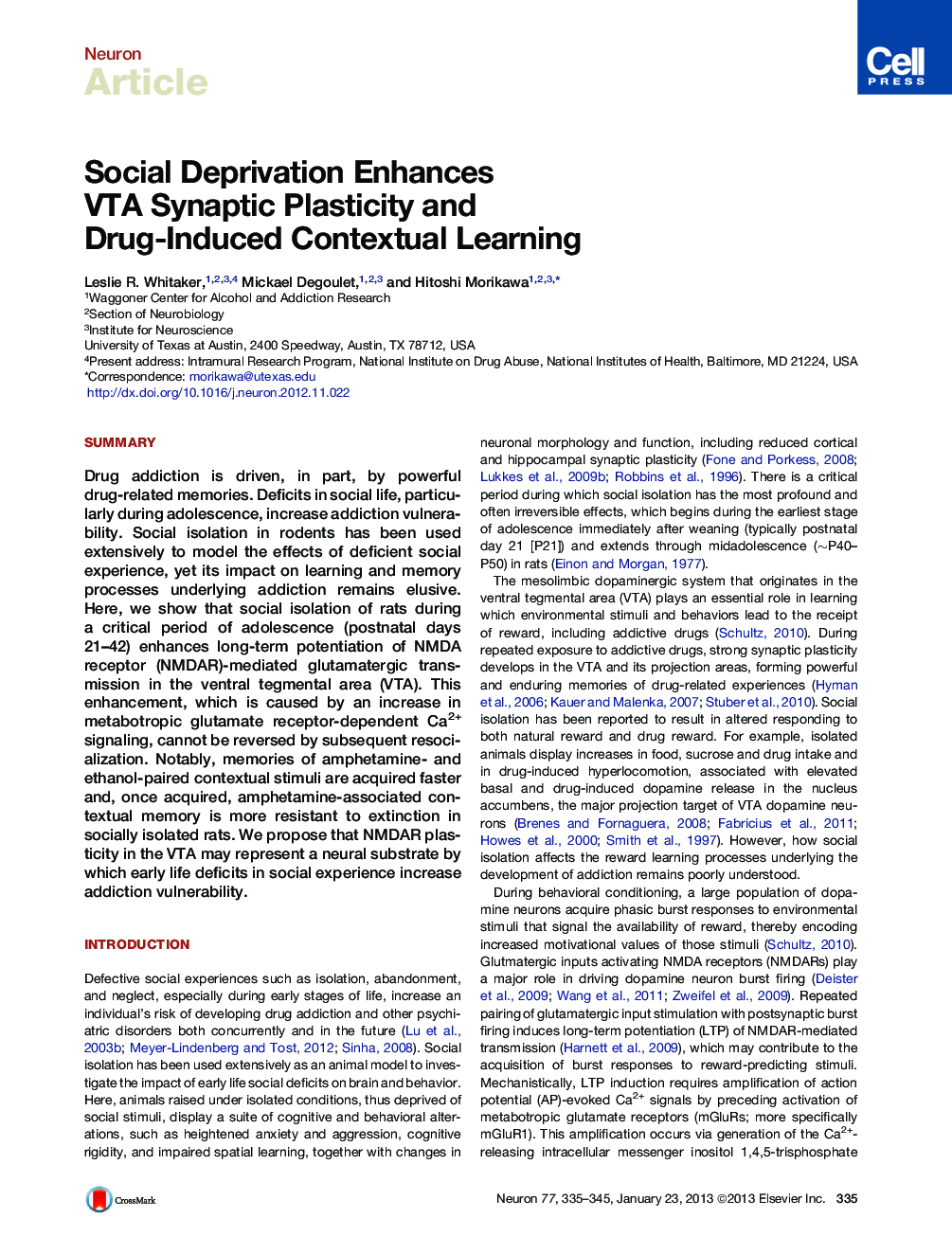| کد مقاله | کد نشریه | سال انتشار | مقاله انگلیسی | نسخه تمام متن |
|---|---|---|---|---|
| 4321182 | 1291582 | 2013 | 11 صفحه PDF | دانلود رایگان |

SummaryDrug addiction is driven, in part, by powerful drug-related memories. Deficits in social life, particularly during adolescence, increase addiction vulnerability. Social isolation in rodents has been used extensively to model the effects of deficient social experience, yet its impact on learning and memory processes underlying addiction remains elusive. Here, we show that social isolation of rats during a critical period of adolescence (postnatal days 21–42) enhances long-term potentiation of NMDA receptor (NMDAR)-mediated glutamatergic transmission in the ventral tegmental area (VTA). This enhancement, which is caused by an increase in metabotropic glutamate receptor-dependent Ca2+ signaling, cannot be reversed by subsequent resocialization. Notably, memories of amphetamine- and ethanol-paired contextual stimuli are acquired faster and, once acquired, amphetamine-associated contextual memory is more resistant to extinction in socially isolated rats. We propose that NMDAR plasticity in the VTA may represent a neural substrate by which early life deficits in social experience increase addiction vulnerability.
► Social isolation of rats enhances synaptic plasticity of NMDARs in the VTA
► Enhanced NMDAR plasticity occurs via increased mGluR/IP3-dependent Ca2+ signaling
► Social isolation promotes amphetamine and ethanol conditioned place preference
► Social isolation is effective only during an adolescent critical period (P21–P42)
Journal: - Volume 77, Issue 2, 23 January 2013, Pages 335–345